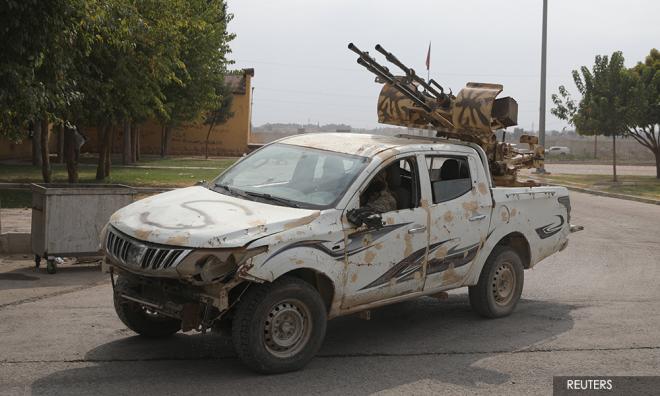
The Covid-19 pandemic is though fundamentally a health crisis, and its effects are so extensive that the pandemic has resulted in more than half of the world population in confinement, put trade - international trade in particular - on hold and if not managed well, it could threaten global peace and security.
Recently, the United Nations (UN) secretary-general António Guterres described the Covid-19 pandemic as the "gravest test since the founding of this organisation".
The UN, which came into existence on Oct 24, 1945, has a number of objectives and the primary is the maintenance of world peace and security, without which no friendly relations, no international cooperation and no harmonization of nations’ actions could be possible.
Although nations across the world are currently struggling to address the impact of Covid-19 on health, economy, education and food security, the threat posed by the pandemic to world peace and security should not be taken lightly but should be effectively dealt with.
Otherwise, as the Guterres warned, it may potentially lead to an increase in social unrest and provide opportunities to terrorist groups to strike that would greatly undermine nations’ ability to effectively fight the disease.
Effective combating of this disease requires international cooperation and coordinated efforts to address the issue of terrorism and prevent terrorist groups from taking advantage of the situation created by the pandemic with governments everywhere busy focusing on the health impact.
This created a window of opportunity for terrorists to strike. This window has to be closed on the face of terrorists through the coordinated efforts of the UN and its 193 members to deny them the opportunity to strike or to enable themselves to become bioterrorists that could cause enormous devastation to societies everywhere, especially to the population of conflict-affected nations.

Appeal for ceasefire
Conflict-affected nations, such as Syria, Libya, Yemen, Iraq and Afghanistan, are not in the position to successfully address the multifaceted effects of Covid-19 on their populations as they are in a state of internationalised warfare. Their governments are busy fighting non-state armed actors backed by foreign powers and thus have little or no time or resources to combat the disease.
If guns are not put to silence in these countries and the Covid-19 pandemic is left without a response, that effect will be devastating not only to the health of the people there but will pose a threat to world’s peace and security.
Realising the danger created especially by the pandemic, some states, as well as the UN, had appealed for the cessation of the hostilities. Recently, the Afghanistan President Mohammad Ashraf Ghani had appealed to the Taliban to lay down arms for Ramadan to allow the authorities to focus on tackling the coronavirus pandemic, but the Taliban turned down the appeal for a ceasefire.
Moreover, none of the warring parties in the conflict-affected nations heeded the UN’s recent appeal for ceasefires to allow the authorities to fight the disease. It seems mere calls for ceasefires are not enough. The UN Security Council should effectively utilise its peace-making role to persuade foreign powers involved in those conflicts to stop sponsoring and arming their proxies.
If that does not work the council should invoke its Chapter VII authority to impose sanctions against those powers until they cooperate. Unfortunately, some veto-wielding members of the Council are involved in those conflicts. This is the reason why the Council has failed in its primary responsibility to maintain international peace and security.
Although some efforts have been exerted at the national and regional level or simply through bilateral arrangements to resolve some of the above conflicts, these were hindered by the Covid-19 pandemic. Consequently, many peace processes have been delayed as most nations are busy responding to the health threat posed by the disease.
Covid-19 should not only be seen only as a threat to health but also a threat to world’s peace and security that requires a coordinated and multilateral solution. Cooperation among nations, rather than isolationism and protectionism, should be the way forward in the fight against this pandemic and its wide-ranging effects.
MOHAMMAD NAQIB EISHAN JAN is a professor at the Ahmad Ibrahim Kulliyyah of Laws, International Islamic University Malaysia. - Mkini



No comments:
Post a Comment
Note: Only a member of this blog may post a comment.